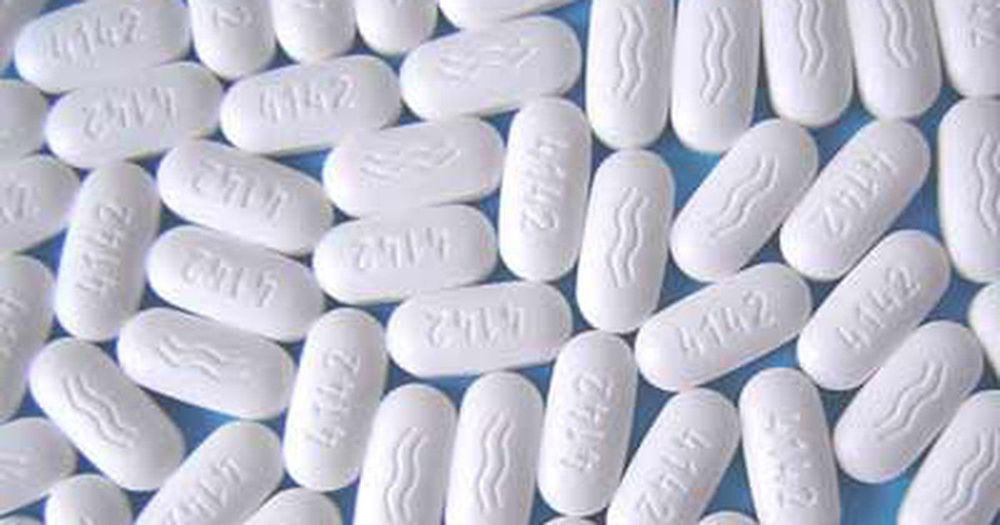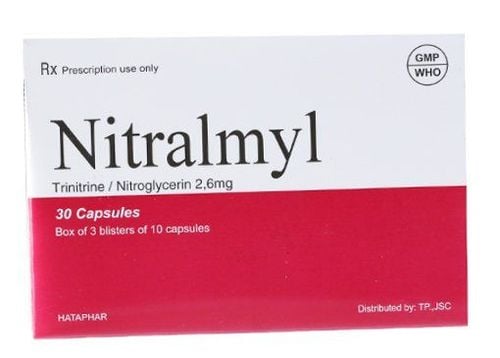This is an automatically translated article.
Multaq is used if you have had some type of irregular heartbeat (paroxysmal atrial fibrillation or persistent atrial fibrillation) in the past but now your heart rate is normal. Medicines help you keep your heart rhythm normal and reduce the risk of atrial fibrillation again. Multaq is known as an antiarrhythmic drug, this medicine should not be used if you have permanent atrial fibrillation because of the increased risk of very serious side effects.
1. Indications and contraindications of the drug Multaq
Multaq is contraindicated in the following cases:
Prevention of recurrent atrial fibrillation paroxysmal AF Multaq is contraindicated in the following cases:
Low blood magnesium levels. Low blood potassium Levels 2nd degree atrioventricular block Torsade de pointes Sinus node syndrome Bradycardia QT interval prolongation on ECG Severe heart failure Acute decompensated heart failure QT changes on ECG at birth Interstitial pneumonia Pulmonary fibrosis Liver disease Severe Acute renal failure Decreased kidney function Abnormal liver function tests Pregnancy Breastfeeding Increased risk of cardiovascular events More severe chronic heart failure
2. How to use Multaq
Carefully read the instructions for use provided by your doctor before you start taking Multaq and each time you are given a refill. If you have any questions about how to use Multaq, ask your doctor.
Multaq is to be taken by mouth with food as directed by your doctor, usually twice daily (once at breakfast and once with dinner).
Avoid eating grapefruit or drinking grapefruit juice while using Multaq unless your doctor says you can safely do so. Grapefruit may increase your risk of side effects from this medicine.
You should take Multaq regularly to get the most benefit from it. To avoid forgetting to take your medication, take it at the same times each day. Do not stop taking Multaq without first asking your doctor, keep taking it even if you feel well.
Your doctor may also direct you to take another medicine ("blood thinner"/anticoagulant) to reduce your risk of serious blood clots forming.
Get medical help right away if your heart rate or pulse becomes fast or irregular while using Multaq.
Tests such as electrocardiogram, kidney function, liver function, blood mineral levels including potassium should be performed periodically to monitor your progress or check for side effects as you use Multaq.

Thuốc Multaq được chỉ định phòng ngừa rung nhĩ tái phát và rung nhĩ kịch phát.
3. Side effects of the drug Multaq
While using Multaq, you may experience nausea or diarrhea. If one of these side effects persists or gets worse, tell your doctor right away.
Remember that your doctor has prescribed this medicine for you because they have judged that its benefits outweigh the risk of side effects. Many people use Multaq without any serious side effects.
Tell your doctor right away if you have any serious side effects of Multaq, including: Symptoms of liver disease (such as persistent nausea/vomiting, loss of appetite, stomach/abdominal pain, yellowing) eyes/jaundice, dark urine), symptoms of lung problems (such as a persistent dry cough with difficulty breathing), signs of kidney problems.
Get medical help right away if you have any very serious side effects of Multaq medicine, including: Slow/fast/irregular heartbeat, fainting, severe dizziness.
A very serious allergic reaction to Multaq is very rare. However, if you have any symptoms of a serious allergic reaction to Multaq, including: rash, itching/swelling (especially of the face/tongue/throat), trouble breathing, dizziness, Get medical help right away.
The following are the side effects of Multaq including:
Common Multaq side effects include:
Nausea Diarrhea Stomach cramps Body weakness Less common Multaq side effects include: :
Bradycardia QT interval prolongation on electrocardiogram Chronic heart failure Stroke Occurrence of blood clots in arteries Worsening of chronic heart failure. Indigestion Dermatitis Eczema Itching Skin Rash Rare side effects of Multaq include:
Torsade de pointes Atrial flutter Allergic reactions causing vasculitis Inflammation of the blood vessels Interstitial pneumonia Pulmonary fibrosis Liver damage Liver failure Kidney failure Increased skin sensitivity to sunlight High blood levels of Bilirubin Abnormal liver function tests Anaphylaxis Angioedema Lung tissue problems Decreased kidney function Taste impairment This is not a complete list of possible side effects. occurrence of Multaq. If you notice other side effects of Multaq medicine not listed above, contact your doctor right away for prompt treatment.
4. Measures to prevent side effects of Multaq
Before taking Multaq, tell your doctor if you are allergic to this medicine and any other allergies, if any. Multaq products may contain ineffective ingredients that may cause allergic reactions or other problems.
Before using Multaq, tell your doctor your medical history, especially of: liver disease, certain types of abnormal heart rhythms (second-degree, third-degree atrioventricular block or arrhythmia, unless you have an artificial pacemaker), serious side effects (such as liver/lung disease) from taking the drug amiodarone.
The main ingredient of Multaq is Dronedarone which can cause a condition that affects heart rhythm (QT prolongation). This condition can rarely cause severe (rarely fatal) fast/irregular heartbeat and other symptoms (such as severe dizziness, fainting) that require immediate medical attention.
Before surgery, tell your doctor or dentist that you are being treated with Multaq.
Older adults may be more sensitive to the side effects of Multaq, especially QT prolongation.
Multaq should not be used during pregnancy, because it can harm the unborn baby. Talk to your doctor about using reliable forms of birth control when using this medicine. If you become pregnant or think you may be pregnant while being treated with Multaq, tell your doctor right away.
It is not known whether Multaq passes into breast milk. Due to the possible risk of unwanted effects on the infant, breast-feeding while using this medicine is not recommended.

Trước khi dùng thuốc Multaq, hãy cho bác sĩ biết các loại thuốc bạn đang dùng.
5. Multaq drug interactions
Drug interactions can change the way Multaq works or increase your risk of serious side effects. Tell your doctor about all the medicines you use including prescription/nonprescription drugs and herbal products. Do not start, stop, or change the dose of any medicine while using Multaq, without your doctor's approval.
One product that may interact with Multaq is: Fingolimod.
Many drugs besides dronedarone can affect heart rate (QT prolongation). Examples include amiodarone, disopyramide, dofetilide, flecainide, pimozide, procainamide, propafenone, quinidine, sotalol, and several others.
Other drugs may affect the removal of dronedarone from your body, which may affect how Multaq works. Such drugs include azole antifungals (such as ketoconazole, itraconazole, voriconazole), cyclosporine, macrolide antibiotics (such as clarithromycin, erythromycin), nefazodone, HIV protease inhibitors (such as lopinavir, ritonavir), rifampin, St. . John's wort, anticonvulsants (such as carbamazepine, phenobarbital, phenytoin), telithromycin, and some others.
Dronedarone may slow the removal of other medicines from your body, which may affect how they work. Affected drugs include dabigatran, digoxin, flibanserin,....
6. What to do if you overdose or forget to take Multaq?
If you or someone else has overdosed on Multaq and has severe symptoms such as fainting or difficulty breathing, call 911 immediately.
If you miss a dose of Multaq, skip the missed dose and take your next dose at your usual scheduled time, do not double your usual dose.
7. How to store Multaq . pills
Store Multaq at room temperature, away from light and moisture, do not store in the bathroom, and keep it away from children and pets. Dispose of this medication appropriately when it has expired or is no longer needed by you.
Please dial HOTLINE for more information or register for an appointment HERE. Download MyVinmec app to make appointments faster and to manage your bookings easily.
Reference source: webmd.com












